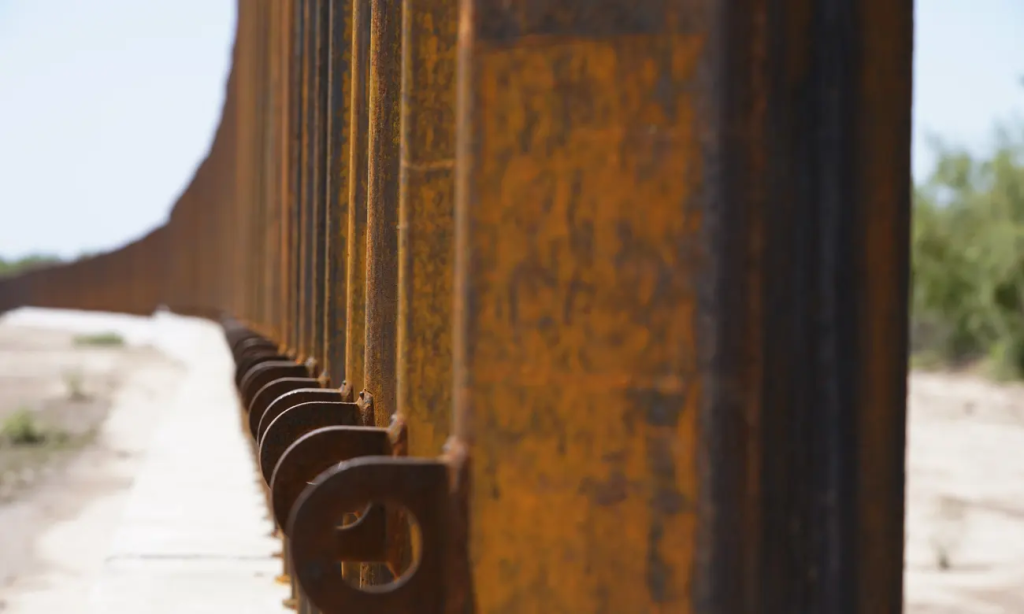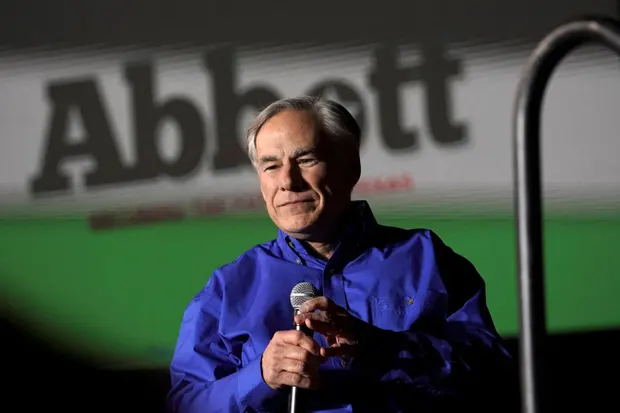Governor Greg Abbott wants to make the border safe for his state but loose gun laws allow cartels to drive to any Texas gun shop and legally stockpile guns, Mexican officials say

US-Mexico border | Sam Garcia | 17 Oct. 2022
Saying he wants to make the US-Mexico border as safe as possible for his state, Texas’s governor Greg Abbott last month signed an order designating Mexican drug cartels as “terrorist organizations” and urged the Joe Biden White House to do the same.
But the same border that Abbott insists he wants to make safer is actually being destabilized by Texas’s lax gun laws, which the governor defends and which the Mexican cartels exploit to arm themselves – legally – to the teeth, according to officials left to grapple with the situation.
Despite Mexico’s well-documented high levels of violence, legally purchasing guns there is actually quite difficult. The nation of nearly 130 million people has a single store that can legally sell guns.
On a military base in Mexico City, that store was selling fewer than 40 guns a day in recent years, and it’s prohibited from even advertising its wares.
But the infamously violent cartels that Abbott and other Republicans blame violence along the border on have found another route to stockpile weapons: the United States.
Mexican foreign affairs ministry legal adviser Alejandro Celorio Alcántara estimates that a half-million guns annually are purchased legally in the US and then brought into Mexico illegally. About 70% of guns seized in Mexico from 2014 to 2018 and submitted for tracing had originally come from the US, according to officials with the American bureau of alcohol, tobacco, firearms and explosives (ATF).
It’s a situation that bewilders leaders of Mexican communities who have collectively grieved more than 150,000 killings – mostly at gunpoint – since 2006.
Chief among them is Carlos Peña Ortiz, the mayor of Reynosa, a Mexican town along the US border which sits just 11 miles away from a Texas gun store where residents and visitors can legally buy guns.
“We are having a problem with high-caliber military weapons,” Peña Ortiz said recently. “We know that most, if not all, of these high-caliber weapons are coming from the United States and a significant amount are likely coming from Texas. The financial incentive to smuggle weapons into Mexico is high and purchasing them in Texas and driving a few miles is too easy.”
As Peña Ortiz has seen, there are many rifles styled after AK-47s that can be purchased relatively cheaply in the US for between $500 and $1,000, then taken to Mexico and resold at three or four times that value.
The easy access to a legal inventory in Texas and then lucrative prices on the secondary market has flooded some Mexican border towns – including remarkably violent ones – with guns.

One of the Mexican federal government’s responses to that flow of weapons has been to sue US gun dealers and manufacturers. A US federal judge dismissed one of those lawsuits targeting manufacturers, but then the Mexican government immediately filed one targeting dealers, though the ones named in that case – at least so far – are based in Arizona.
Though such suits have either failed or remain unresolved, the US has acknowledged the likelihood that guns purchased in border communities may end up in Mexico, and it has imposed a rule requiring “multiple sales” in border states to be reported to the ATF, ostensibly to track and rein in trafficking of powerful guns into Mexico.
But the effect of those rules is limited by the loose gun laws championed prominently by states like Texas, Peña and other Mexican officials argue.
Texas, at least currently, does not require a license of any kind to own a high-caliber rifle in its state limits. Anyone complying with federal requirements can legally purchase a high-caliber rifle in Texas upon turning 18.
Many in the public called on government officials to limit access to such guns after young men used high-powered rifles to carry out deadly mass shootings at a school in Uvalde, Texas, and a supermarket in Buffalo, New York, earlier this year.
In June, New York passed a law requiring people purchasing semi-automatic rifles to first obtain a license, and it would be a felony for vendors to sell to anyone – even privately – who is not licensed.
After a deadly mass shooting at a retail store in El Paso, Texas, in 2019, Abbott’s staff apparently considered a similar measure.
But nothing ever materialized, and Abbott’s allies in Texas’s Republican-controlled measure have only loosened gun restrictions, including by legalizing the public carrying of handguns by Texans without training, a license or a background check.
It’s made it easier than ever to drive to any Texas gun shop and legally stockpile guns, whether or not the customers belong to a Mexican cartel.
And that region continues struggling with gun violence, unimpeded either by Abbott’s $4bn border security mission Operation Lone Star and his designation of Mexican carteliers as terrorists.


You must be logged in to post a comment.